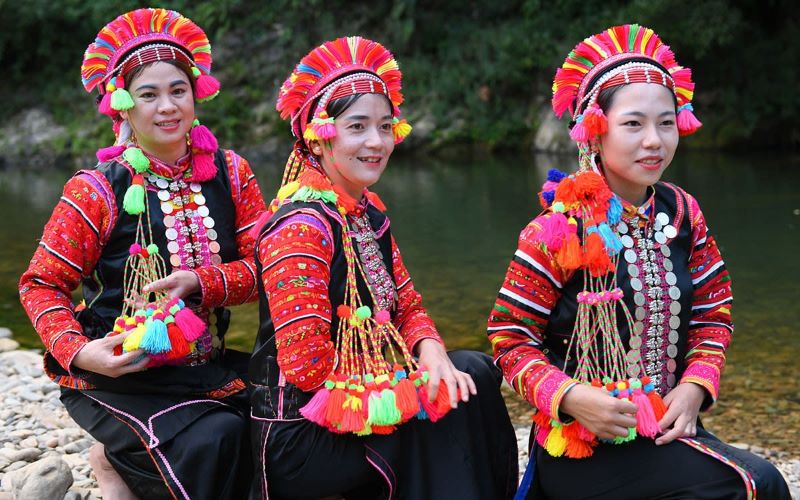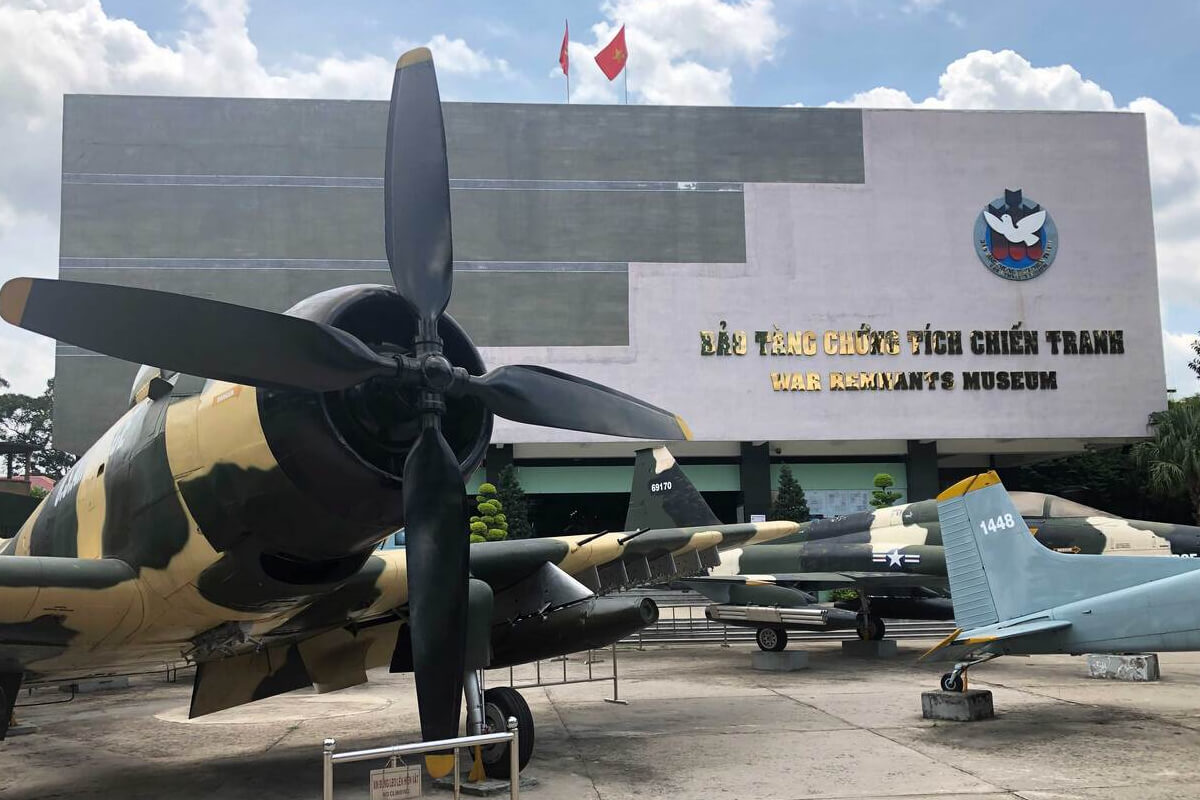Culture of Vietnam: Traditions, Food, Festivals & the Story Behind the War Remnants Museum
The culture of Vietnam is a rich tapestry of history, food, faith, family, and resilience. Whether you're tasting street food in Hanoi or exploring the War Remnants Museum in Vietnam, your trip to Vietnam will leave you with more than just photos — it will leave you changed.

When you plan a trip to Vietnam, the first things that may come to mind are scenic beaches, bustling markets, or tasty street food. But Vietnam is far more than just a travel destination its a land rooted in deep values, vibrant festivals, proud traditions, and unforgettable history.
Whether youre wandering through old quarters of Hanoi, tasting pho at a roadside stall, or standing silently inside the War Remnants Museum in Vietnam, one thing becomes clear Vietnam isnt just a place you visit, its a place you feel.
In this article, well explore the culture of Vietnam in its full color and contrast its people, traditions, food, art, and the stories that shaped its past and present.
? An Introduction to the Culture of Vietnam
Vietnamese culture is a beautiful blend of indigenous values, Confucian traditions, Buddhist influence, and traces of French colonialism. What makes it stand out is its resilience and warmth shaped by centuries of invasion, resistance, and recovery.
At the heart of the culture of Vietnam lies a strong sense of:
-
Community over individuality
-
Family as the social core
-
Respect for elders and teachers
-
Harmony with nature
-
Deep-rooted spirituality in everyday life
Whether youre visiting the countryside or the capital, youll feel this cultural pulse in everything from how people greet each other to how they serve their food.
? Vietnamese Festivals and Celebrations
Festivals are the most vibrant reflection of any culture and Vietnam has a lot of them! Rooted in history, religion, and agrarian traditions, here are the top ones to experience:
? T?t (Vietnamese Lunar New Year)
-
The most important celebration in Vietnam
-
Families clean homes, cook traditional dishes, and exchange lucky money
-
Streets are decorated with red and gold, and markets are full of peach blossoms
? Mid-Autumn Festival (T?t Trung Thu)
-
Celebrated with lantern parades, mooncakes, and family gatherings
-
Symbolizes harvest and childrens happiness
? Hung Kings Temple Festival
-
Honors the ancient founding kings of Vietnam
-
Includes processions, music, and traditional games
If your trip to Vietnam coincides with any of these festivals, expect color, music, and food like never before!
? Vietnamese Cuisine: Where Culture Meets Taste
You cant talk about Vietnamese culture without talking about its food. Every bite tells a story of regions, traditions, and family love.
Famous Dishes:
-
Ph?: Rice noodle soup with beef or chicken a national staple
-
Bnh m: Vietnamese sandwich with French roots
-
G?i cu?n: Fresh spring rolls with herbs and prawns
-
Bn ch?: Grilled pork with rice noodles and fish sauce
Regional Differences:
-
North: Balanced flavors, use of herbs
-
Central: Spicy and complex dishes (Hue is known for royal cuisine)
-
South: Sweet and bold, with more coconut-based dishes
Eating in Vietnam is not just a meal its an experience. Street food is safe, tasty, and full of surprises.
? Beliefs & Spirituality

Most Vietnamese people follow a mix of:
-
Buddhism
-
Taoism
-
Confucianism
-
Ancestor worship
Pagodas and temples are found everywhere, and even city homes have mini-altars with incense and offerings. Spirituality is woven into everyday actions praying before travel, making offerings during festivals, or simply showing respect to the past.
? Arts, Music, and Handicrafts
Vietnams cultural soul is reflected in its traditional arts:
? Music & Dance:
-
Ca tr: A form of classical female vocal music
-
Water Puppet Theatre: Puppets perform folk stories on water a must-watch in Hanoi
? Handicrafts:
-
Silk weaving, conical hats, lacquerware, and ceramics are not just souvenirs they carry centuries of craft and pride
? Modern Art:
-
Vietnams cities now embrace modern art galleries, hip cafs, and graffiti walls creating a bridge between old and new culture
? Architecture: Colonial to Contemporary
From ancient temples to French boulevards, Vietnamese architecture is a timeline you can walk through.
-
Traditional homes with tiled roofs and courtyards
-
French colonial buildings in Hanoi and Ho Chi Minh City
-
Modern skyscrapers rising beside ancient pagodas
??? The Importance of Family & Social Harmony
In Vietnamese culture:
-
Elders are respected like wisdom keepers
-
Children are taught to be obedient and responsible
-
Family meals are sacred and shared without gadgets or distraction
-
Community festivals bind people even in remote villages
Even as urban life grows fast, these values still anchor daily life.
? History That Shapes Culture: War Remnants Museum in Vietnam
To truly understand Vietnam's cultural strength and emotional depth, one must step into the War Remnants Museum in Vietnam located in Ho Chi Minh City.
?? Whats Inside?
This museum offers a raw, emotional look into:
-
The Vietnam War (19551975), especially the impact of U.S. military actions
-
Photographs, weapons, tanks, and real stories of pain and resilience
-
A section dedicated to Agent Orange victims, including haunting imagery
-
Stories of journalists, civilians, and children affected by war
Its intense. Emotional. Unfiltered. But important.
Why Its Part of Vietnamese Culture?
Because Vietnam doesnt hide its scars it shares them. The War Remnants Museum in Vietnam is not about hate, but about healing and learning. It shows how a country ravaged by war has risen with strength, dignity, and peace.
Tip: Go with an open mind, and expect to leave deeply moved.
? Cultural Etiquette for Travelers
-
Remove shoes before entering homes or pagodas
-
Dont touch anyones head its considered sacred
-
Use both hands to give or receive something respectfully
-
Dress modestly in temples and traditional spaces
-
Smile often its the best currency in Vietnam
? How to Experience Vietnamese Culture as a Traveler
-
Take a cooking class in Hoi An
-
Join a bike tour through rice paddies in Ninh Binh
-
Attend a traditional music show in Hue
-
Chat with locals in markets many speak basic English and are eager to share stories
-
Visit both modern cities and quiet villages to see the contrast
? Final Thoughts

The culture of Vietnam isnt just something to observe its something to feel, taste, hear, and absorb. From the flavor-packed food and spiritual festivals to the quiet strength reflected in places like the War Remnants Museum in Vietnam, this country tells a story of joy and pain, beauty and survival.
So on your trip to Vietnam, go beyond the guidebooks. Walk slower. Talk to strangers. Eat with your hands. Listen to the stories. Thats where the real culture lives not in monuments, but in moments.

































